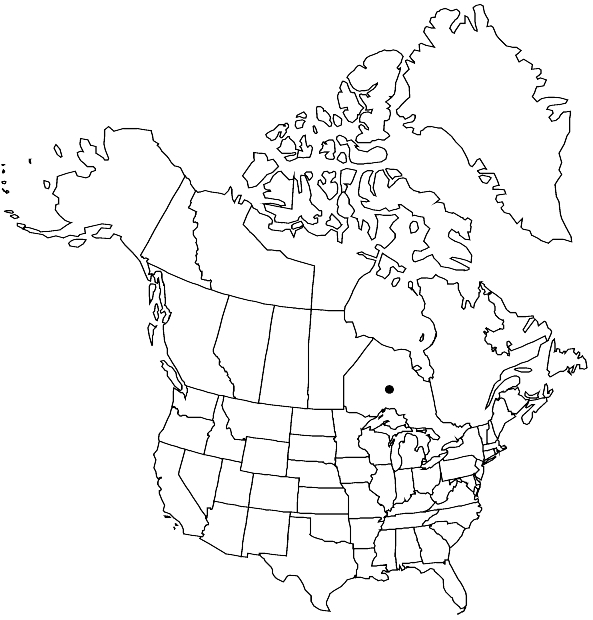Syntrichia cainii
Bull. Buffalo Soc. Nat. Sci. 32: 267. 1993,.
Stems 10–20 mm. Leaves infolded, twisted, and slightly contorted when dry, erect-spreading with recurved tips when moist, variable in shape and size, usually oblong-ovate, 1.5–2 × 0.75–1.5 mm; margins revolute in the proximal 1/2–2/3, entire; apices obtuse but abruptly narrowed to a blunt tip; costa ending well before the apex, brown, smooth; basal cells abruptly differentiated, narrower toward the margins; distal cells rounded, polygonal, or quadrate, 12–18 µm, with 3–5 papillae per cell, thick-walled and collenchymatous. Specialized asexual reproduction absent. Sexual condition dioicous (perigonia and sporophytes unknown).
Habitat: Limestone
Elevation: moderate elevations
Discussion
Plants identified as Syntrichia cainii from elsewhere in North America (e.g., Kansas, Colorado, and California) are probably incorrectly identified. The difficulty comes from several other species (especially S. norvegica) having scattered neotenic races in which the mature leaves lack awns and thus appear superficially similar to S. cainii. More detailed research, including culture studies, is needed to better understand and distinguish these forms.
Selected References
None.
